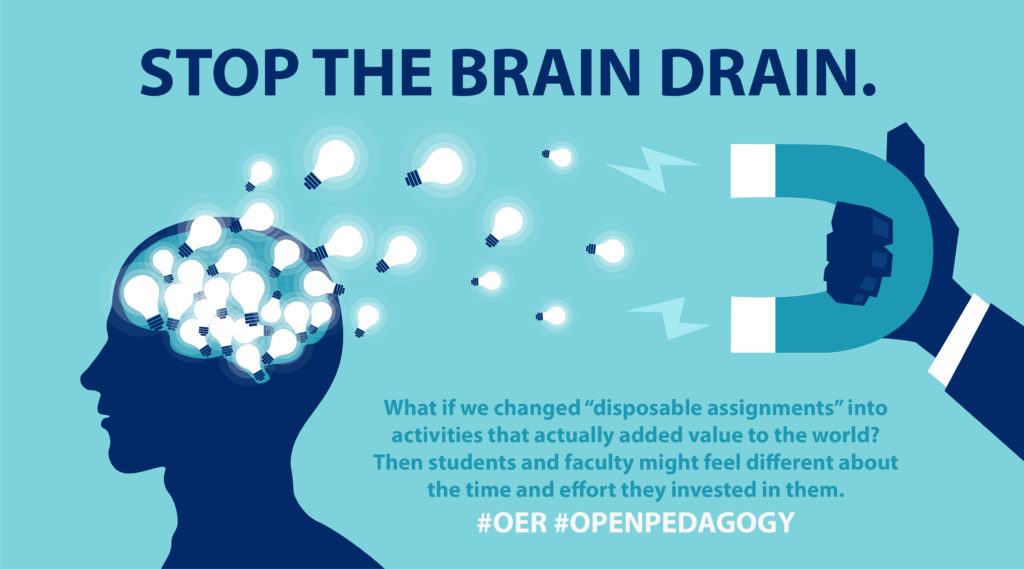
I have sometimes felt an inordinate amount of my life has been spent doing school assignments that are ends with no means instead of being means to some important end. One could argue that graduation would be the end that would justify the mean, but I would argue that the plus benefits of having worked on “meaningful” assignments during the school process would be an enhancement to a degree AND the world.
So, imagine my delight when I read the article by David Wiley What is Open Pedagogy? and found that others share the same sentiment about the time spent on homework that doesn’t add value, both for the students doing the assignments and for the teacher doing the grading. He said:
If you’ve heard me speak in the last several months, you’ve probably heard me rail against “disposable assignments.” These are assignments that students complain about doing and faculty complain about grading. They’re assignments that add no value to the world – after a student spends three hours creating it, a teacher spends 30 minutes grading it, and then the student throws it away. Not only do these assignments add no value to the world, they actually suck value out of the world. Talk about an incredible waste of time and brain power (an a potentially huge source of cognitive surplus)!
David Wiley
Wiley goes on to ask: “What if we changed these ‘disposable assignments’ into activities which actually added value to the world?” He then makes the case for OER and open pedagogy as a way to make this happen. He provides several effective practices to adopt with examples of open pedagogy. He then defines open pedagogy and makes the case that we can’t have open pedagogy without the permissions granted with open licensing.
Although this article was published in 2013, it provided insight into looking for ways to kill the disposable assignment, both in how I approach my assignments in the future, and in what I would require of students I would teach.
#intro2opened
